Problem: Count distinct values in an array filtered by another array on same row (and agg higher).
Explanation:
Using this data:
 In the Size D70, there are 5 pcs available (hqsize), but shops requests 15. By using the column accumulatedNeed, the 5 first stores in the column shops should receive items (since every store request 1 pcs). That is [4098,4101,4109,4076,4080].
In the Size D70, there are 5 pcs available (hqsize), but shops requests 15. By using the column accumulatedNeed, the 5 first stores in the column shops should receive items (since every store request 1 pcs). That is [4098,4101,4109,4076,4080].
It could also be that the values in accumulatedNeed would be [1,4,5,5,5,...,15], where shop 1 request 1 pcs, shop2 3 pcs, etc. Then only 3 stores would get.
In the size E75 there is enough stock, so every shop will receive (10 shops):
Now i want the distinct list of shops from D70 & E75, which would be be final result: [4098,4101,4109,4076,4080,4062,4063,4067,4072,4075,4056,4058,4059,4061] (14 unique stores) (4109 is only counted once)
Wanted result: [4098,4101,4109,4076,4080,4062,4063,4067,4072,4075,4056,4058,4059,4061]. (14 unique stores) I'm totally open to structure the data otherwise if better. The reason why it can't be precalculated is that the result depends on which shops that are filtered on.
Additional issue The answer below from Vdimir is good and I've used it as basics for the final solution, but the solution does not cover (partial fullfillment). If the stock number is in the runningNeed array we are all goodt, but remainers are not handled.
If you got:
select 5 as stock,[2,2,3,3] as need, [1,2,3,4] as shops, arrayCumSum(need) as runningNeed,arrayMap(x -> (x <= stock), runningNeed) as mask
You will get:
This is not correct since the 3rd shop should have 1 from stock (5-2-2 = 1) I can't seem to get my head around how to make an array with "stock given", which in this case would be [2,2,1,0]

